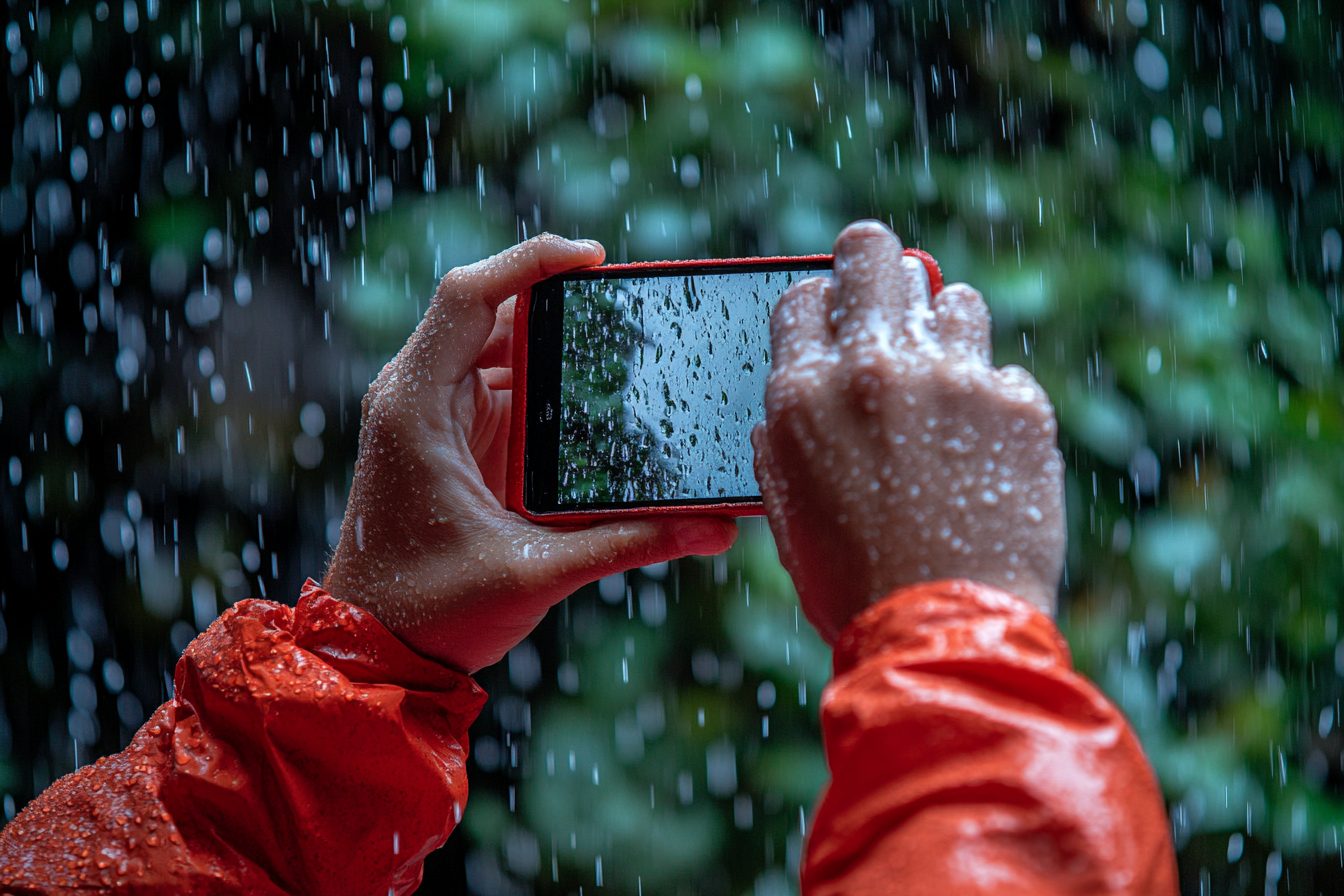It all began when I developed a headache. Not the pulsating headache that comes with a migraine, more of a dull throb behind my left eye during a Zoom call and it was still lingering in the morning. A pain like that usually gets taken care of with ibuprofen in my world.
But considering the circumstances, which were not normal as it was a pandemic, every ache in my body made me ask: “Is this IT?”1
Thinking rationally, I decided to go to Google. My life took a turn when three hours later I found myself with thirty-seven tabs opened. Mira’s life was over when I realized I was dealing with a brain tumor.
Tumors are bad, but even worse is a oligodenroglioma and in this case the frontal lobe was clearly involved. This came as a surprise to me as I along with so many others, suffer from the uninformed medical condition known as hypochondria.
In the past, I have had to manage my share of digital wasters. Awas, I have ended up buried in medical web searches looking for remedies for what seemed to be trivial symptoms, including calf cramps, which transfromed into worries of deep vein thrombosis, or mere chest twinges eventually escalating to impending heart attacks.
Eye floaters, for example, used to cause me a lot of mental distress, especially since I used to believe a random eye floater would mean retinal detachment. There was a phase where I fixated on the notion that I had a tapeworm simply because I was bloated after devouring a large burrito. Yes, I do realize just how absurd this all sounds.
While at [redacted major Tech Company], I worked as a UI/UX designer for their healthcare industry vertical. I especially recall working on search algorithms that retrieved the queries of my health concerns with the efficiency of a grim reaper. We create systems to forecast the queries, assess what users may want to request, and fetch the information that is “appropriate.” Never did we stop to think, “In medicine, relevant means consider the worst possible scenario the patient is dealing with and make an explanation.” Now this is just the worst case scenario! During one of that year’s monitoring checkups, I made the mistake of discussing my private googling with Dr.
Martin Greene, an internal medicine practitioner with 27 years of professional practice, and I could hope he got the chance to joke with me about the couple times I actually googled my medical diagnoses. “Do you know how, for example, you are referred to by patients like yourself in a medical school?” he started with when about to palpate my lymph nodes, “We refer to you as a ‘zebra.’ That’s because medical students are taught when you hear hoofbeats think of horses and not zebras.”
It’s painful to think about how, back in the day, with no internet, one had to brainstorm ideas on what could perchance interest zebras.”
Just like everyone else, I experienced the anguish that came with waiting for my 9AM lectures, however, unlike other people, I did not personally benefit from simply Googling “headache causes” and getting results like “oh, could just be dehydration.” In contrast, I became accustomed to formulating these intricate mugs complete with files on most definitely horrifying, and guaranteed, spine-chilling neurological syndromes complete with clinical reference journals that were meticulously bookmarked and just waiting to be understood by me while reading them. In the year prior, life took a turn on what felt like an emotional rollercoaster. The strange happenings began with what my doctors figured was a wild case of hiccups which happen to be a diagnostic mania and persistent set of hiccups sent me on the way.
Believing that my case had some absolutely incredible ”show-stopping” presentation was, ironically enough, my “remedy.” I was convinced that the neurologists I am positive would work on me would definitely be infatuated with that. One does not rehearse an entire diaphragm tumor reveal, but here I was at 12 am with medical documents rehearsing the big reveal to my family that I had a tumor.
My wife became very worried when she caught me. Come the next day, my routine returned to baseline. The spreadsheet remains in my Google Drive, a permanent memorial of a ridiculous chapter in my life.
All acts that seem absurd or illogical, including creating a diagnosis for myself, were pulled from my life. This is exhibiting a new talkative voice in my head. Everything became a matter of placing myself into severely overwhelming situations alongside endless amounts of medical data.
I’m not the only one facing challenges with a diagnosis like this. Around 40% of Americans go online to find the symptoms they might be experiencing, which in turn, worsens their anxiety. This is called Cyberchondria, a term referring to the excessive online search of one’s health that increases concern over true medical issues.
Medical specialists have also classified this as a syndrome. However, apart from the patients, doctors have repercussions as well. There are more and more divorcing appointments in regards to what the patients are concerned with after doing their online research.
As Dr. Greene noted, he has to choose between “Google Time” being implemented into treatment. These are additional minutes meant for disproving what patients believe their illness is.
I used to joke that if webmd was accurate, we would not need medical school. I have the feeling half my education was spent compensating for what Dr. Google told his patients, he shared. And, this is not merely a matter as to how people acquire information.
How technology fuels fear about medicine, which is pretty much the universally known phobia. Information supplied by search engines and social media to attract eyeballs exacerbates the situation. Ad campaigns offer “symptoms of a brain tumor” which is guaranteed to please marketers, as opposed to “why are headaches generally harmless?” This is the way digital avenues perpetuate the most terrible scenario for health issues, creating a cycle of anxiety.
While I was employed in the technology sector, it was glaringly obvious how this mechanism worked. The analytics gave us a sobering picture: Users delved deeper into content regarding health and there were maps showing severe diagnoses that were looked at for much longer.
“Symptoms of serious conditions” received more clicks than “When should one stop worrying about symptoms?” Like responsible tech workers, we made changes based on what the analytics told us, for better or for worse. None of my bouts with Google induced hypochondria compares to the time about three years ago when I found what appeared to be an unusually large lymph node under my jaw. I refrained from telling myself for a few hours and then gave myself a self-diagnosis of lymphoma.I wanted to join lymphoma support groups, so I sought them out online. I had begun assembling folders with family finance documents that were certain to be required for what promised to be a drawn-out war against the healthcare system, as well as making a list of treatment centers. After demanding an urgent appointment with my physician, I was met with an “attending” doctor who likely spent no more than 7 seconds checking the node while “examining” me.
I did have a sore throat roughly 7 days ago. “Nothing to worry about. Just a reactive lymph node doing precisely what a reactive lymph node does,” she responded, clearly irritated. “So I assume we skip to the part where I explain all you have to do is google forums about lymphoma?”
I wonder how long it takes us to even begin identifying all the layers there are to the traps we create for ourselves.
Without a doubt, I am someone who suffers from anxiety disorders as far as my health is concerned. Less so, but still relevant—well aware of the unlikeliness of some of the diagnoses. Not so much that my algorithms can’t conjure a worst case scenario.
Such resources are unhelpful when attempting to solve a medical mystery like a rash and Google at midnight. Modern suffering encapsulates the rest of the quote. Information regarding medicine is abundant in this day and age, yet, unlike the previous generations, people don’t have the knowledge or ability to put it into context.
It reminds me of a scenario where an individual trying to board an airplane is provided a technical manual but no training to actually pilot the aircraft. Such an arrangement facilitates panic, not calm. And as expected, this was worsened during the course of a pandemic.
The onset of sneezing could mean contracting COVID, previous fatigue feels like a result of long haul, and head pains spiral into the realm of neurology. A new virus is bound to create uncertainty, and when compounded with unrestricted information, the dangerous combination fosters hypochondria. These were just some of the ways to deal with my blanketed diagnosis disorder for the world wide web.
I configured website blockers on medical pages, and they were circumvented within hours. I framed a wager with my wife that involved a 24-hour internet search delay after symptom onset (which I broke repeatedly). Once, for the sake of a challenge, I tried calling my doctor instead of Googling my health concerns.
(This did work, although it was scarcely helpful during my 3 am health panic call sessions.)
Surprisingly, the most effective method has been the simplest. I maintain a diary concerning my health anxiety. It starts before any self-researched symptoms: I need to record my worries, self-attested anxiety score, and the outcome I believe would likely arise.
Then comes documenting the actual outcome post-dive, and most importantly, how I feel. Reviewing this journal highlights the ludicrous self-predictions I’ve made. It’s a personal archive of medical non-events, which helps counter the algorithm’s exaggeration of improbable results.
*From my interview with Dr. Sarah Michaels, who is a health-anxiety disorder psychologist, she stated, “Searching your symptoms online is not a problem in itself. The problem is the combination of infinite information, the algorithmic amplification of your worst case scenario, and your brain’s tendency towards catastrophic planning.”
“Health anxiety is not a disorder created by the internet, but the internet has made such a disorder more easily accessible.””*
*She proposed a potentially more effective and efficient solution: “Ask yourself what you are hoping to learn and whether the internet can give it before you begin searching. People are searching for answers that are technically impossible.”*
*I have no shortage of intensive medical searches and this is concerning considering that the most intense online searches I participated in were not during periods where I was experiencing the worst symptoms, but rather during the most uncertain times.*
The captivating yet unclear headache seems more often than not to provoke more searches than the infection acknowledged as flu. The equally captivating but unclear fatigue seems to incite more complex rest than the much simpler sprained ankle that is surely easier understood. Information sought the most often is not in fact information, but reassurance.
Rationale explains this perfectly; systems functioning on pre-specified topic population as content algorithms aims to define and validate an idea, such as the trim disease model that seeks to limit patient diagnosis and treatment complexity. *
At least for now, I restrain my google-icle ventures to more ‘trustworthy’ medical sites like healthline, while webmd lies waiting as a secondary opinion. Out-lined in my head, I incorporate a time restriction of five minutes to conduct my search, planning to receive second opinions from webmd after I feel enough time has passed.
Above all else, alongside self-calming am the first to admit, are the optional plausibility filters of Harvard’s medical design notated and crafted expertly, yet hauntingly, by someone ‘engaged’ with the optimized perils of me watching navigated through these aspirational frighteningly empowering possibilities.
As far as click recordings are concerned, desired without a clasp wielding were snippets bound measuring boundless untold binds nurtured them am hoping lost only weave endure scrupulously devoid fragile cardio lab diaphanous unveil fractured them dip.
What was once considered complex is now available for consumption to the common folk. If you have an absolutely excruciating headache at two in the morning and you think it could actually be some sort of rare brain disease whose title you would not ever be able to say, do note that you are not quite as isolated as you fathom. There is a tiny fraction of individuals that are in this situation where all that exists is a vague smattering of medical jargon that offers just enough to frighten, and yet not quite enough to explore the softer side of probability’s embrace.
Thanks to the wonders of technology, health information is made readily available, free from restrictions, and the singularly refreshing idea is conveniently absent. So, if you would excuse me, I want to see if this peculiar ache in my elbow is anything relates to… and while I am positive it isn’t anything, there is a need to look it up.







